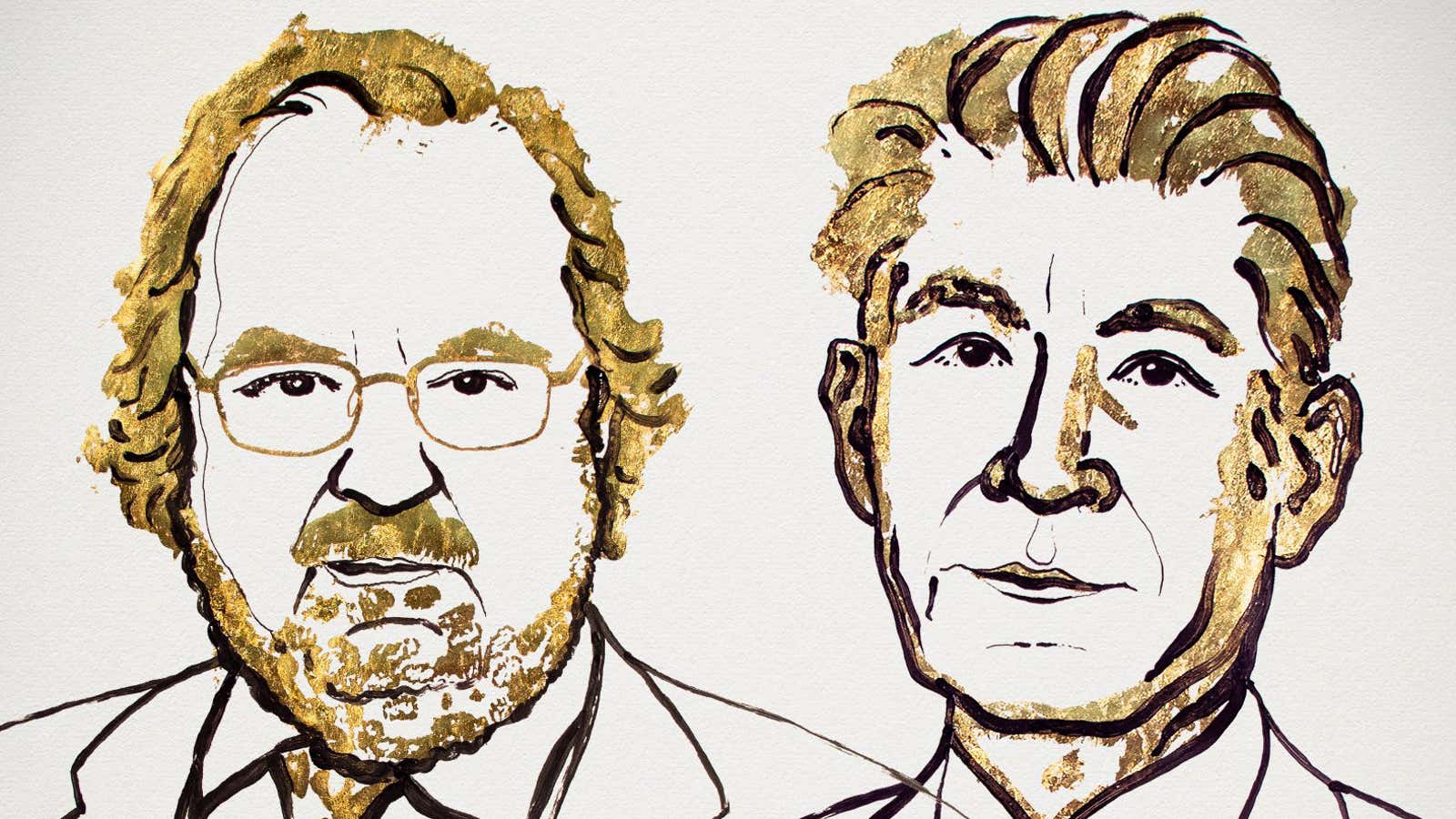A series of remarkable scientific breakthroughs over the last century have made cancer a less deadly disease. This year’s Nobel Prize in physiology or medicine has been awarded to two scientists for one such advancement.
James Allison, currently at the MD Anderson Cancer Center at the University of Texas, and Kyoto University’s Tasuku Honjo were given the prize “for their discovery of cancer therapy by inhibition of negative immune regulation.” Here’s what you need to know to understand why their research is so important.
Cells gone rogue
If cancer were a virus or bacteria, it’d be easier to beat. Our immune system has evolved over millions of years to ward off external threats, and modern medicine has found other external ways to attack such intruders.
The trouble is that cancer is made up of the body’s own cells gone rogue. That’s why treatments like radiation and chemotherapy tend to be indiscriminate. They attack cancer cells and healthy cells alike. Surgery can be more selective, but it can’t always get rid of all cancer cells. And in some cancers, such as that of the blood, it’s not possible to use surgery.
For more than 100 years, scientists have been trying to find ways to use the body’s own immune system to attack cancer cells. The strategy makes sense: Why not harness this exquisite and well-designed system to do the job?
Consider our immune system’s T-cells. They have receptors to differentiate “self” cells from “non-self” cells. If scientists could just tweak T-cells to either recognize cancer cells as “non-self” cells or remove its ability to differentiate, they would have a new type of cancer therapy.
The invention of checkpoint therapies
But biology is complicated. Until Allison and Honjo came along, scientists had discovered that T-cells have brakes and accelerators, which are held in intricate balance to give the immune system the ability to attack intruders but not harm the body’s own cells. Yet, no attempts had yielded a method to deploy the immune system to attack cancer.
In the 1990s, Allison, who was at the University of California at Berkeley, was studying a receptor called CTLA-4 that acted as a break on the activity of T-cells. Drugs meant to enhance the CTLA-4 receptor were already being studied to treat people with overactive immune systems. Allison wondered what would happen if, instead of enhancing the receptor, scientists tried to block its activity. That would cause T-cells to become more active and attack cancer cells.
His intuition paid off. Initial studies conducted on diseased mice showed that T-cells can indeed attack cancer. The pharmaceutical industry didn’t seem interested, but Allison continued the line of research.
At about the same time, across the Pacific Ocean, Honjo at Kyoto University in Japan was studying a different T-cell brake receptor called PD-1. Blocking PD-1 had a similar result causing T-cells to attack cancer. Better still, PD-1 seemed to be able to achieve the feat for a wider range of cancers.
After nearly 20 years of work, clinical trials in the 2010s began to prove Allison and Honjo right. PD-1 therapy is being shown to be effective against lung cancer, renal cancer, skin cancer, and lymphoma (cancer of the immune system). Better still, combination therapies of blocking CTLA-4 and PD-1 are even more effective in patients with melanoma.
Today, these cancer treatments are called checkpoint therapies. As with other cancer therapies, there are side effects, as T-cells sometimes attack healthy cells too. But the side effects are usually manageable, and researchers are looking for ways to reduce them. The Nobel Prize committee says that Allison and Honjo’s work has “revolutionized cancer treatment and has fundamentally changed the way we view how cancer can be managed.”
You can read all of Quartz’s coverage of the 2018 Nobel Prizes here.
